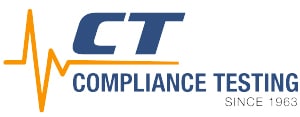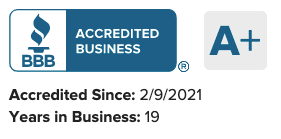Get Free Help From Our Engineers With FCC Compliance
Need help complying with FCC Part 15 or other standards? We work with businesses and individuals worldwide, including in Finland, to achieve compliance with Part 15 and other FCC regulations.
Click the “Talk to Our Team” button or call us on 866-540-5287 to ask our engineers your question about FCC testing and compliance, or request a free quote for testing and achieving FCC authorization for your device.

In the United States, electronic devices need to comply with the FCC’s standards in order to get the FCC mark and legally enter the market. Most electronic devices, including almost all devices aimed at consumers, are regulated under the FCC Part 15 rules.
Cell phones, which emit radio frequency (RF) energy, are required by law to complete the FCC’s certification process. This means that they need to be tested to demonstrate that they meet Part 15 requirements and complete certification with the FCC.
The FCC certification process can seem intimidating, but it’s a relatively simple process that you can move through step by step as a manufacturer, distributor or importer to bring your device to market in the United States.
As specialists in FCC testing and certification, we can help you directly by providing a quote for your device or answering your questions. Contact us online or call us at 866-540-5287 to talk to our team of engineers and compliance experts.
You can also learn more about FCC certification for cell phones, including the reasoning behind phones requiring certification, specific FCC standards, and the testing process, below.
Why Do Phones Need FCC Certification?
FCC certification is important for cell phones and other devices that emit radio frequency energy for several reasons.
The first is that these devices, if untested, can produce radio frequency emissions that interfere with other devices. You’ve probably experienced the effects of interference if you’ve ever taken a call on an older cell phone near a radio, TV or other device that receives signals.
When a phone causes interference, it can affect the signals received by other devices, causing stuttering and a weak signal.
At home, this interference can be an annoying inconvenience. However, in a workplace setting, interference from cellular devices can cause everything from inaccurate readings on some types of devices to malfunctioning, and even damage to important equipment.
The second reason is that certification ensures compatibility between devices. Cell phones are designed for communication, and this requires that they use a signal that other mobile devices can accept and use effectively. This is especially important for international phone usage.
The third is that certification is a legal requirement for cell phones. Because cell phones need to create radio spectrum waves in order to facilitate communication, they’re classed as “intentional radiators” by the FCC, meaning they require FCC certification to go on sale.
The FCC takes compliance seriously, and the agency has been known to take legal action when companies sell non-compliant phones and other devices — a topic we’ve discussed more in our list of recent FCC fines and legal actions.
In other words, phones need certification from the FCC to ensure they don’t emit RF energy that can interfere with other devices, to make sure they’re compatible with other devices, and to stay in compliance with the laws of the United States.
FCC Standards & Regulations for Cell Phones
The FCC regulates cell phones under FCC Part 15, or, as it’s technically called, Code of Federal Regulations, Title 47, Part 15.
FCC Part 15 is a comprehensive set of regulations that governs all radio frequency devices that are used in the United States. It covers both intentional radiators, like phones and Wi-Fi routers, as well as unintentional radiators, such as computer peripherals and power tools.
Unlike phones, which emit RF energy on purpose, unintentional radiators emit RF energy as an unintentional byproduct of their normal operation.
The primary aim of FCC Part 15 is to prevent interference from cell phones and other electronic devices, and to make sure these devices use the radio spectrum efficiently.
FCC Part 15 regulates cell phones and other mobile devices in three key ways:
- Radio frequency exposure. Under Part 15, there are strict limits on the amount of RF energy devices can emit. The FCC sets these limits based on direct recommendations from federal health and safety agencies, taking into account scientific research.
- Electromagnetic compatibility (EMC). Cell phones are also required to demonstrate that they do not emit harmful electromagnetic interference (EMI) that could affect other devices. They must also show a high degree of immunity to interference.
- Radio spectrum usage. In addition to RF energy and EMC requirements, the Part 15 rules impose limits on use of the radio spectrum. This is to stop interference with other communications systems that may use similar or shared frequencies.
For more information about the specific requirements of FCC Part 15 for cell phones, contact our team online or call us at 866-540-5287. Our team can provide you with up-to-date data on the latest requirements for FCC certification and guidance on regulatory compliance.
How to Get FCC Certification for Your Phone or Cellular Device
Obtaining FCC certification for a cell phone is more complicated than achieving compliance for an unintentional regulator, such as a computer accessory.
However, it’s still a clearly defined process that your business can follow to achieve compliance and bring your device to market. The key steps are:
- Design your device with compliance in mind. Compliance begins during the design phase of your project, during which you’ll select components and begin designing your device. You can contact us during this phase for guidance on optimal components.
- Select an accredited testing laboratory. You’ll need to complete testing to verify that your device meets the FCC’s requirements. As an accredited phone testing lab, we can complete the testing process for you and provide full, detailed reporting.
- Submit documentation. Prior to testing, you’ll need to provide documentation for your device. Our team will explain the documents we need to complete lab testing, such as technical specifications and user manuals for your device.
- Complete testing and review results. Our lab will complete the necessary tests for your device to confirm it complies with the FCC’s standards. Once complete, you will receive detailed documentation showing that your cellular device is compliant.
- Apply for FCC certification. Once testing is complete and your device is compliant, you’ll submit an application for certification to the FCC. This application includes your device’s test results and additional documentation.
- Receive FCC certification. If your application is successful, the FCC will provide you with certification. You’ll receive an FCC ID number for your device and gain the right to add the FCC mark to your device and its packaging.
How to Check a Phone’s FCC ID Number
By law, cell phones sold in the United States are required to comply with FCC regulations. You can check a phone’s FCC certification status online by verifying its FCC number using the FCC website.
You can typically find the FCC ID number for a phone on the back of the device, on the phone’s packaging, or in the regulatory section of the phone’s settings menu.
Contact Us About FCC Testing & Certification for Cell Phones
Completing testing and gaining FCC certification is a critical step in bringing your cell phone or other mobile device to the market.
As an accredited electronics testing lab, we can complete FCC testing for your device to verify that it complies with all requirements under FCC Part 15. We can also assist you with the other steps in the process to help you gain FCC certification for your cellular device.
To request a quote for testing and certification, or to ask our team of engineers and regulatory compliance experts about the testing and certification process, contact us online or call us at 866-540-5287.
Request a Free Quote From Our Team
Please enter your name, contact information, and any information about your device and the type of testing you need into the form below. Our team of engineers and compliance specialists will contact you as soon as possible with a free quote for your project.




